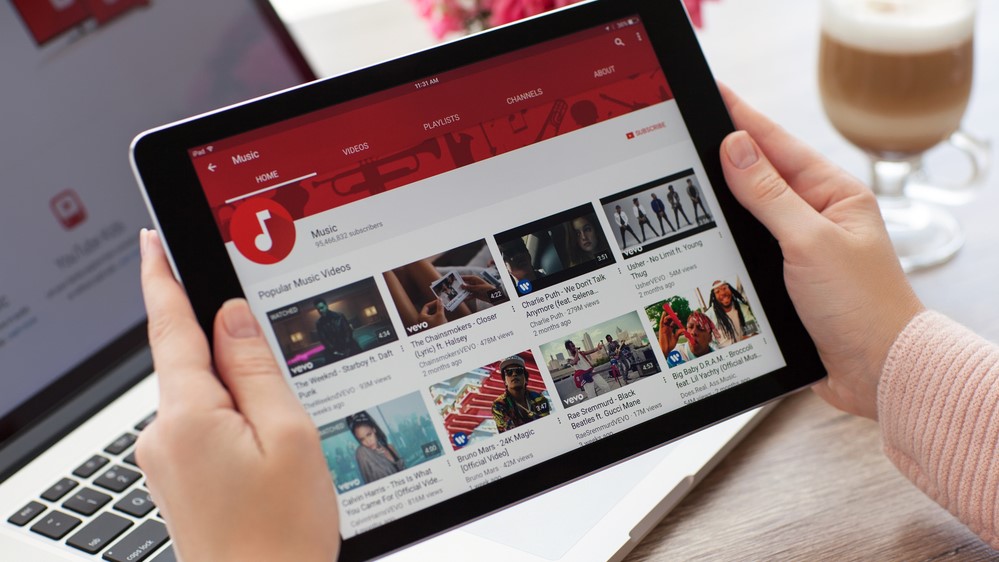YouTube vs Vimeo

YouTube and Vimeo are two of the most popular video sites around, and at first glance they look quite similar, but there are some key differences.
Whether you're looking for a platform to upload and share your videos, or you want somewhere to watch great quality content, there are lots of factors to bear in mind. Both YouTube and Vimeo offer free services, but both also have various premium services, which differ greatly. Vimeo also allows for much higher video quality than YouTube, which encourages users to focus on quantity rather than quality.
That's not all, though. To find out all the differences between YouTube and Vimeo, and pick the right one for you, read on.
Upload costs
Vimeo works the other way round, letting viewers watch videos for free, but charging creatives to upload their content.
A Vimeo basic account is free, but comes with some strict limits on the amount of data you can upload (see below for full details). Premium Vimeo accounts are priced as follows:
- Plus: $7 / £6 / AU$7 per month billed annually
- Pro: $20 / £16 / AU$20 per month billed annually
- Business: $50 / £40 / AU$50 per month billed annually
- Premium: $75 / £70 / AU$75 per month billed annually
Viewing costs
YouTube lets viewers watch videos for free, but if you don't want to be interrupted by ads then you'll need to upgrade to YouTube Premium. This is free for this first month, and $11.99 / £11.99 / AU$14.99 per month thereafter.
YouTube Premium also lets you play videos in the background while you use other apps on your phone (ideal for music videos), and gives you access to YouTube Originals (TV series and movies commissioned by YouTube).
Sign up for breaking news, reviews, opinion, top tech deals, and more.
Videos on Vimeo aren't peppered with ads, and many are free to watch, but others are available on a pay-per-view basis called Video on Demand (VoD). This offers three tiers:
- Rent, which allows you to stream the video for a specific period
- Buy, which lets you stream the video for as long as it remains on Vimeo
- Subscribe, which gives you access to everything on the VoD's page, including any new videos that are uploaded in future.
VoD payments go directly to the creator. All creators accept US dollars as payment, but other currencies (including pounds sterling and Australian dollars) are optional.
Upload limits
By default, YouTube lets creators upload videos up to 15 minutes long, but you can extend this by verifying your Google account. To do this, tap the camera icon in the YouTube app to upload a video, tap Next and follow the instructions. You can verify your account with either an automated call or a text to your phone.
Once your account is verified, your upload limit will be extended to 12 hours or 128GB (whichever you hit first).
Vimeo upload limits work on a weekly basis. Basic account holders can upload 500MB per week, and can upload no more than 10 videos in 24 hours. They can upload a total of 5GB to their account,
Vimeo Plus account holders can upload 5GB video per week, and upgrading to a Pro account lets you upload 20GB per week. Neither of these plans sets a limit on overall storage space.
Pro Unlimited, Business and Premium accounts have no weekly upload caps, and allow you to store 3TB, 5TB and 7TB of data respectively.
Audience
There's no question that if you want to reach as many people as possible, YouTube is the way to go. Over 2 billion users log in and watch videos on YouTube every month, whereas Vimeo has just 973,000 registered users in total.
However, the experience is very different, with Vimeo offering ad-free viewing and higher quality video uploads with better sound. If you're a filmmaker or a graphic designer, the superior experience might be worth the more limited userbase – and the number of registered users doesn't matter if your Vimeo channel is mostly used as a portfolio for your work, to share with potential clients.
- Discover how to download YouTube videos

Cat is TechRadar's Homes Editor specializing in kitchen appliances and smart home technology. She's been a tech journalist for 15 years, having worked on print magazines including PC Plus and PC Format, and is a Speciality Coffee Association (SCA) certified barista. Whether you want to invest in some smart lights or pick up a new espresso machine, she's the right person to help.